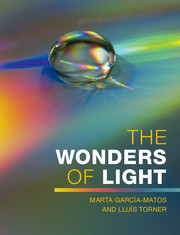RIDDLES
Published online by Cambridge University Press: 05 July 2015
Summary
A problem frowns, a riddle lifts an eyebrow, a paradox smiles: – X believes she is a hypochondriac. Is X a hypochondriac?
Define hypochondria as the unfounded belief of having a disease. Assume hypochondria is a disease. Then if X above is a hypochondriac, then X is not a hypochondriac. But if X is not a hypochondriac, then X is a hypochondriac.
There is something liberating in discovering flaws in rigid systems, as long as they don't threaten your own security. A paradox is a flaw on the rigid system of reasoning. Any formalization of reasoning can be pictured as a path to the top of a mountain. To answer a question, one has to climb to the right solution stepping on single rocks, which are intermediate states of certainty. A paradox is fun because it means bouncing forever between two rocks: it shows that the Mountain of Truth can be tricked. Although this is serious enough to deeply shake the foundations of mathematics, causing one of the greatest philosophical revolutions ever, for the layperson it is a guarantee that playing games on thought will never be over.
Paradoxes are not the only examples of exceptional climbing up the Mountain of Truth. There are questions with infinitely long paths of rocks, or with no path at all. There are questions with paths which, being finite, are so lengthy that it is not possible to reach the peak in trillions of years. If a given question is proved to have no answer, then one is allowed to devote efforts to more efficient tasks, but if a question has an answer and the problem is simply that all the time in a lifetime is not enough to reach the peak, then Mountain-of-Truth climbing deserves a revision. Classical Mountain-of-Truth climbing is characterized by the fact that one always steps on a single true rock at a time. To jump from one rock to another, one just has to give basic true/false answers. This finds a correspondence in classical physics, where things can be in only one place at a time.
- Type
- Chapter
- Information
- The Wonders of Light , pp. 89 - 96Publisher: Cambridge University PressPrint publication year: 2015

